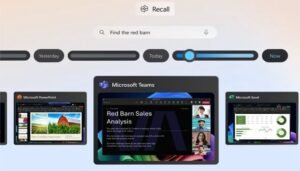Microsoft Introduces Agentic Automation

Microsoft and UiPath Collaborate on Agentic Automation
Microsoft has recently unveiled a partnership with UiPath, introducing “agentic automation” through a bidirectional integration between Microsoft Copilot Studio and UiPath Studio. This innovative collaboration aims to empower developers to seamlessly integrate UiPath automations and agents directly into Copilot Studio. Additionally, Copilot agents will be able to integrate into UiPath Studio, allowing for easier orchestration of workflows across these platforms.
Making Agentic Automation and Orchestration a Reality
Last year, Microsoft showcased how UiPath Autopilot could easily be incorporated into Microsoft Teams and Copilot conversations. The new alliance between Microsoft and UiPath aims to unlock various use cases that can assist customers in tackling distinctive business challenges. Graham Sheldon, Chief Product Officer at UiPath, stated, “We believe in the power of people, agents, and robots working together to solve complex business issues. This collaboration brings the concept of agentic automation and orchestration to life, providing unmatched capabilities and adaptability for our clients.”
To facilitate the integration of UiPath agents within Copilot Studio, UiPath has improved its Power Platform connector, allowing developers to create actions, topics, or agent flows that include UiPath agents and automations easily.
The Rise of Agentic AI and the Future of Process Management
Streamlining Complex Business Processes
Business processes can often be intricate, involving various IT systems, offline documents, and user interactions. The collaboration between Microsoft and UiPath has made it possible for their customers to automate and oversee activities that include multiple applications, semi-structured and unstructured documents, along with user actions. This bidirectional connectivity opens up numerous opportunities, including:
- Invoke UiPath Automations from Copilot Studio: The dynamic input parameters in the connector allow Copilot Studio agents to pass processes to UiPath agents, providing them with the data needed for task completion.
- Utilize Microsoft Agents within UiPath Studio: Activities in UiPath Studio can now utilize Copilot Studio agents as tools or functions, enabling UiPath agents to delegate processes to Copilot Studio agents effectively.
- Manage Long-running and Asynchronous Processes: UiPath agents can relay processes back to Copilot Studio agents to continue processing and trigger subsequent flows. This feature allows a Copilot Studio agent to assign a task to a UiPath agent and pause until the task is completed before moving on to the next actions.
Sangya Singh, Microsoft’s VP of Power Platform Intelligent Automations, emphasized the company’s focus on expanding the capabilities of agents in enterprise environments. She noted, “As we broaden what our agents can accomplish, we simplify achieving our customers’ goals.”
Ramnath Natarajan, Director of Global Intelligent Automation and Integration at Johnson Controls and a member of the PEX Network Advisory Board, pointed out that effective automation cannot occur in a vacuum. He emphasized the importance of integration across various technologies for meaningful business impacts. “This bidirectional integration leverages the strengths of Microsoft Copilot and UiPath agents to fully automate complex workflows across different systems, including documents, emails, PowerApps, and enterprise platforms,” he stated.





